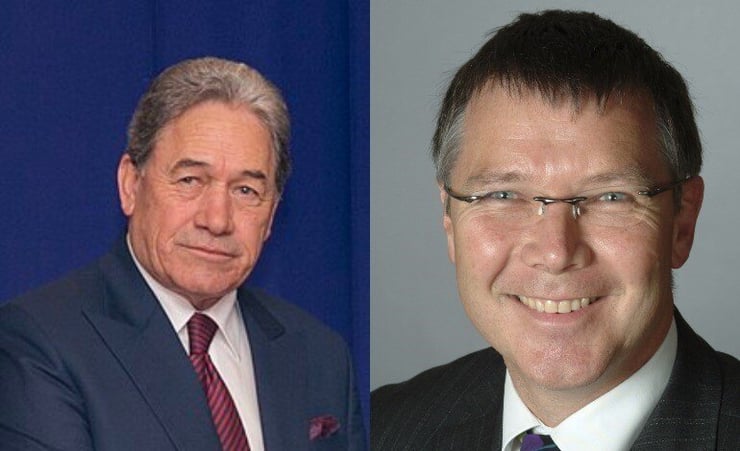Deputy PM Winston Peters to visit India next month

Deputy Prime Minister and Foreign Minister Winston Peters is scheduled to visit India along with Minister for Trade David Parker in February 2020.
This will be the first Ministerial visit from New Zealand to India ever since the new coalition government had taken charge in 2017. However, there have been many senior-level interactions and meetings between Ministers, including the Prime Ministers of the two countries at various global governmental and intergovernmental conferences.
Speaking exclusively to the Indian Weekender, on the sidelines of Indian Republic Day event hosted by the High Commissioner of India in Wellington, Mr Peters acknowledged that India was an important focus area for New Zealand.

India is a key focus
"We need to expand our relationship with the biggest democracy by far in the world, 1.3 billion people. There are enormous opportunities for us to cement a better trade relationship, so my colleague Minister for Trade David Parker and I are going with a business delegation," Mr Peters said.
He further said that they want to achieve much more cooperation between the two economies for the mutual advantage of both countries
Responding to a query on any goals that the visiting Minister would have set for himself and his colleague Mr Parker to achieve from this visit, Mr Peters was at his usual whimsical best when he aptly replied "Yes, most certainly. We want to be successful there."
Simultaneously, he also appeared thoughtful in not raising any premature expectation that naturally tends to emerge from any such high-level Ministerial visit accompanied by a business delegation, especially to India.
Notably, New Zealand has launched its India Inc strategy with much fanfare in 2011 with some ambitious goals of growing merchandise exports to at least $2 billion by 2015, and service trade by an average of 20 per cent per year and making India a core trade, economic and political partner by 2015. It was later followed with two Prime Ministerial visits by Sir John Key in 2011 and 2016.
The growth in mutual two way trade since then, though steady and upward with bilateral trade crossing $2.25 billion mark, had understandably been diminutive of the huge expectations raised after the initial announcement of NZ-India Inc Strategy. Moreover, in recent times the talks on bilateral and a regional free trade agreement (RCEP) have also failed to materialise.
Mr Peters appeared mindful of those existing differential levels of expectations and therefore observed philosophically, "Over the years I heard a lot of optimistic figures, but what we need to do is, be realistic and see where we can cement long term sustainable opportunity to the benefit of both of our economies and both of our people."
"I suppose we will have a number of goals, but the primary one is to build a better platform than we together two have between our two economies. The world needs greater trade relationship, better trade, fairer trade, and that's what our objective will be between ourselves and the Indian people," Mr Peters said.
In 2018, two-way trade between India and New Zealand stood at US $ 2.12 bn, making India the 11th largest trading partner of New Zealand. NZ merchandise exports to India mostly consist of logs and forestry products, mineral fuels and oil, wood pulp, wood, edible fruit and nuts whereas Indian exports to New Zealand comprise of pharmaceuticals, precious metals and gems, textiles and motor vehicles. Education and tourism have emerged as the main growth sectors in services.
The number of tourists from India has more than doubled in the last five years and now exceeds 70,000 per annum.
Proposing an idea of a Commonwealth-FTA, with India as a "Principal Player."
Mr Peters, who had first spoken for a Commonwealth Free Trade Area in February 2016, modelled on the one in existence between Australia and New Zealand (much before first Brexit referendum of June 2016, and the formal announcement by the British government in March 2017 that triggered the Brexit process) also suggested that he will be using the opportunity of India-visit to bolster the idea that can potentially bring together India and New Zealand in a free trade agreement with United Kingdom.
"We should also bear in mind that this Friday the British leaves European Union and the Indian population is part of the commonwealth and that's 2.2 billion people who should be in a trade relationship of our own (commonwealth). India will be a serious principal player."
"So there is sure some vision, but right now here we are going to deal with some hard yards when we visit India next month," Mr Peters said.





